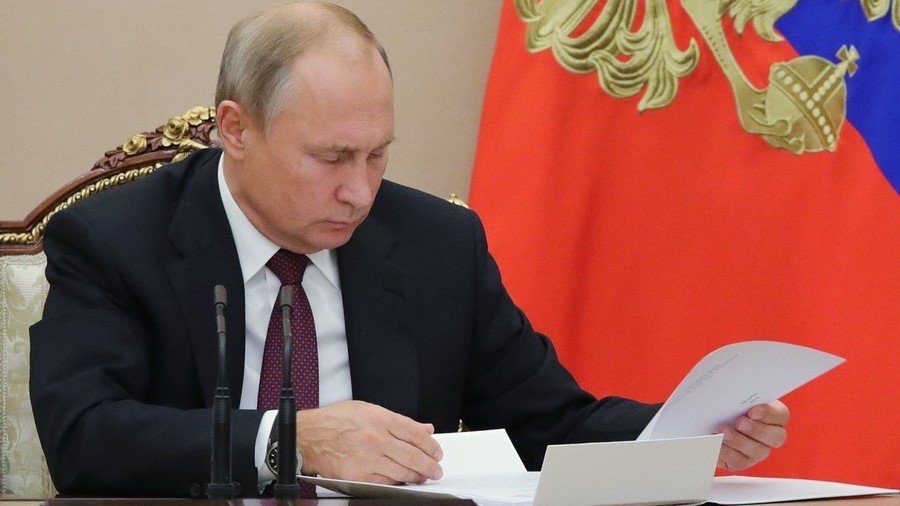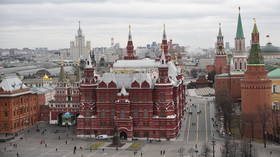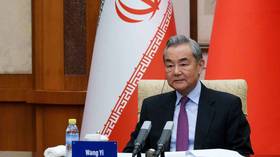Putin intervenes in extremist reposts controversy to stop ‘manifestations of senility’

Russian President Vladimir Putin has proposed softening the law ordering criminal liability for internet reposts of extremist materials. His spokesman described the move as an attempt to “stop the manifestations of senility.”
Putin proposes that the law for hateful speech or internet posts should not apply when the action is committed for the first time and does not pose a serious threat to society. At the same time the president proposes to amend the civil code with provisions that would punish such offenders with fines or short-time civil arrest.
The existing law
The presidential bill ordering changes to the notorious article 282 of the Russian Criminal Code has been already submitted to the State Duma. Currently, the Criminal Code orders punishment of up to six years behind bars for inciting hatred and strife as well as degrading human dignity in public speeches, in mass media and also in internet publications, including reposts of other people’s materials on social networks.
Dmitry Peskov told reporters on Wednesday that the practical application of the existing Russian anti-extremist law had revealed its imperfections and the necessity for changes.
The President has reacted to the issue of decriminalization of Article 282, the so-called article on reposts. This was the presidential initiative. You know what he has said earlier – that everything must fall under common sense and not descend into senility.
The surge in number anti-extremist cases
Application of the law has caused a sharp increase in the number of criminal probes and convictions over the past two years. Earlier this week, Russian Prosecutor General’s Office reported that, in 2017, about 75 percent of all criminal cases launched under the anti-extremist laws were started because of internet posts and reposts.
The agency added that out of a total of 762 anti-extremist criminal cases started in the first half of this year, 571 involved internet reposts.
The scale of the campaign has attracted the attention of mass media and rights activists who discovered that most cases involved relatively harmless offenses.
Examples of recent probes
For example, one offender reposted a cartoon where Jesus asks the head of the Russian Orthodox Church what time it is, only to be told “get lost” in response. The meme appeared after web users noticed that the Patriarch was sporting an expensive Swiss watch on one of the photos posted by his office. Shortly after it appeared, the watch “miraculously“ vanished from the photo – apparently because of a webmaster’s editing.
Another case was started against a Russian feminist who posted jokes about men. The girl had repeatedly complained about misogynistic posts which prompted no reaction.
Earlier attempts to correct the situation
The media campaign around the situation has prompted an intervention from the Supreme Court which officially recommended that any judge presiding over trials caused by internet reposts of extremist materials, should study the context of the suspects’ actions and not blindly agree with conclusions made by prosecutors or forensic experts.
The issue was also brought to Putin’s attention during a televised Q&A session in June. Back then, the president agreed that, in many cases, the actions of prosecutors and judges were “absurd” and promised to address the situation which, apparently, resulted in the latest presidential bill.
Think your friends would be interested? Share this story!

















